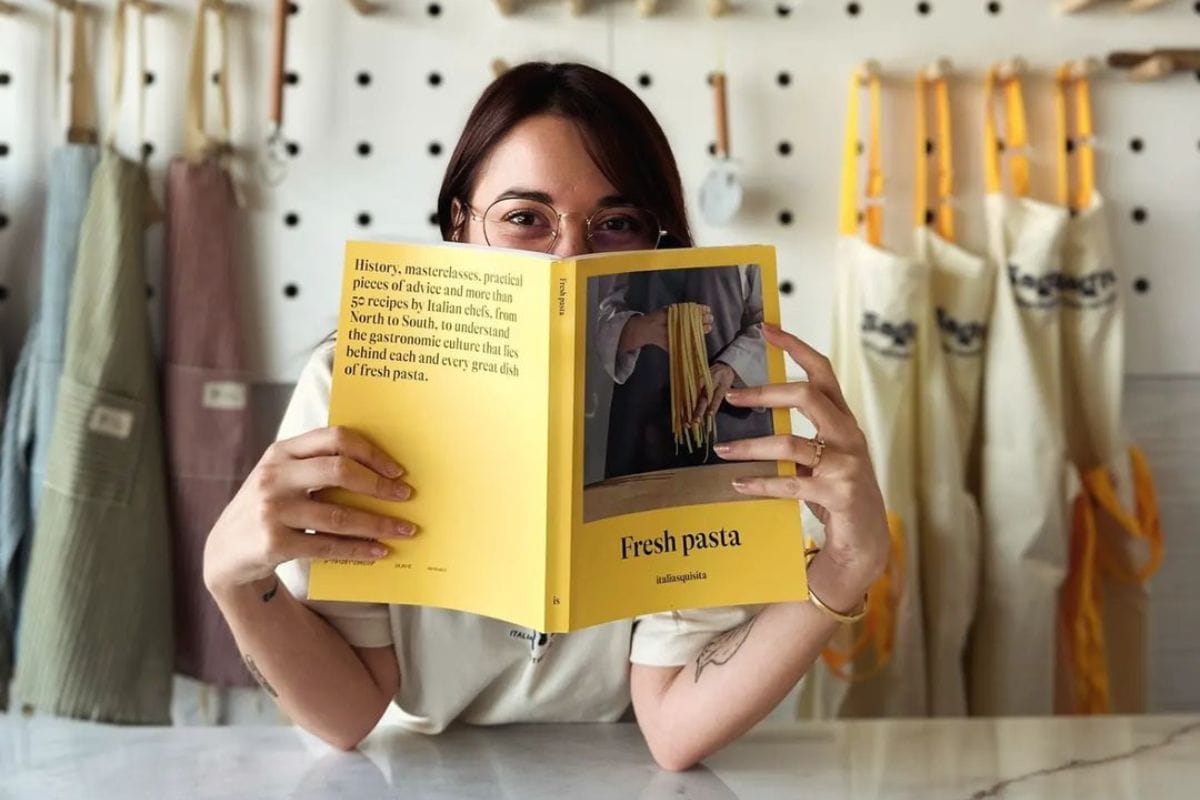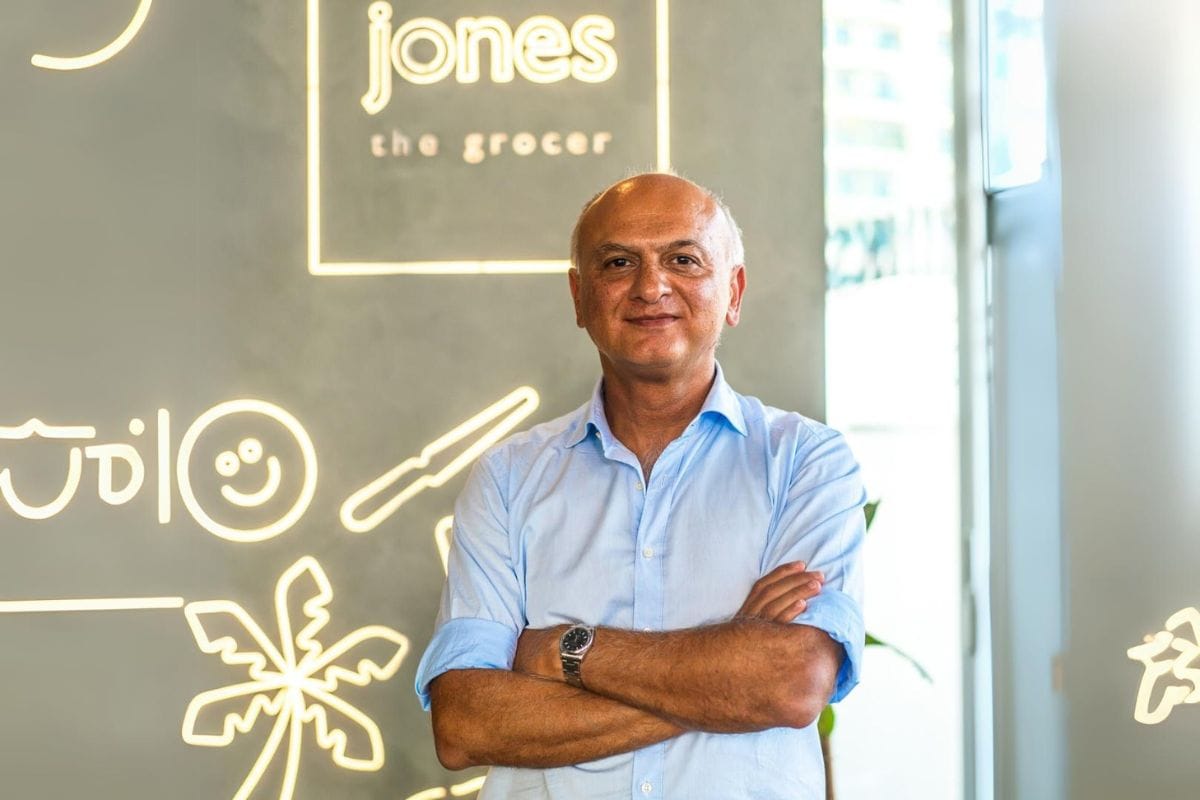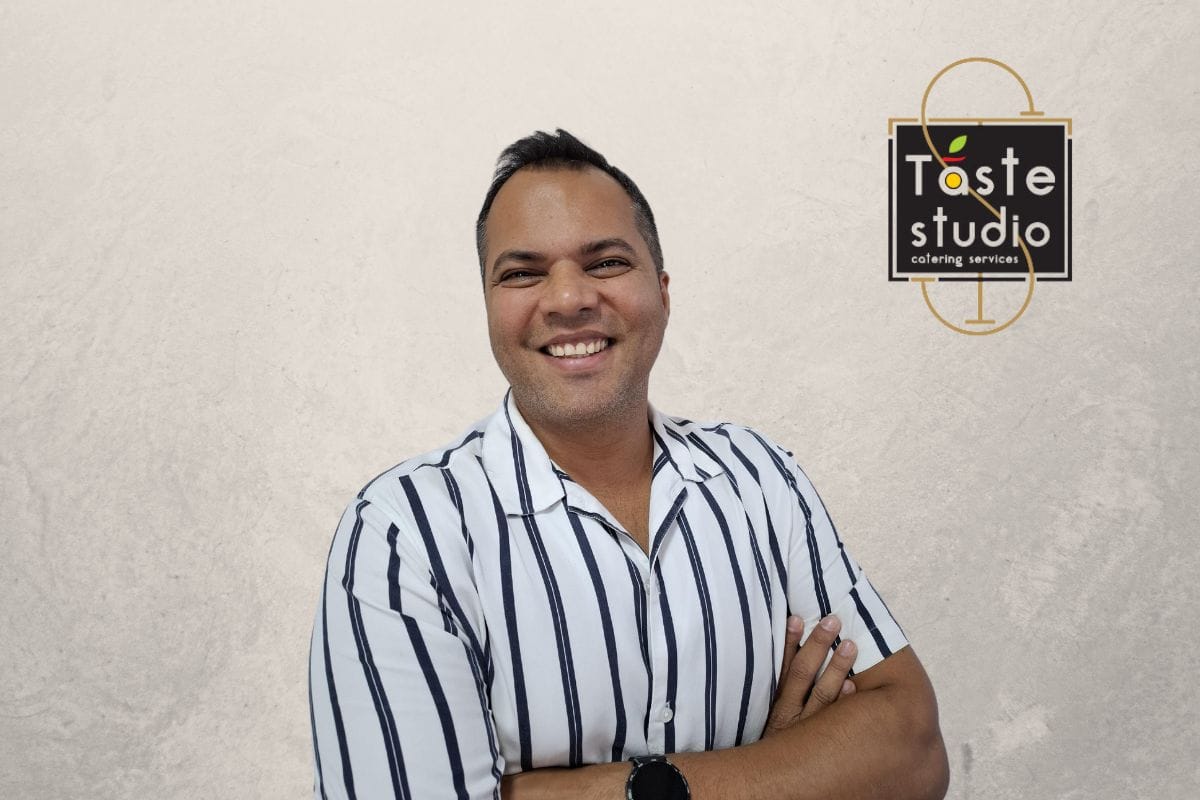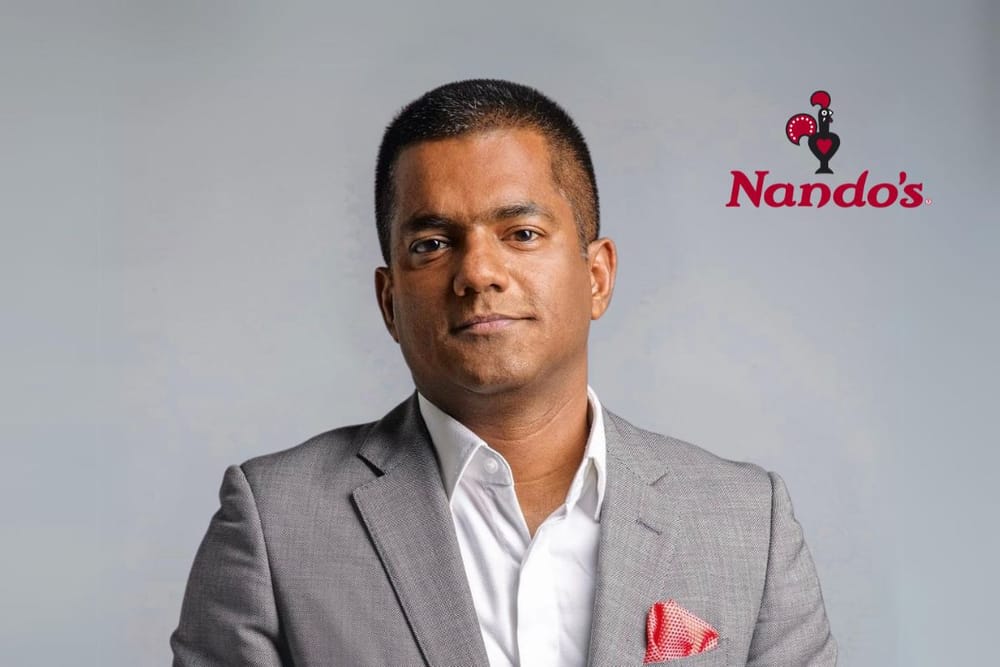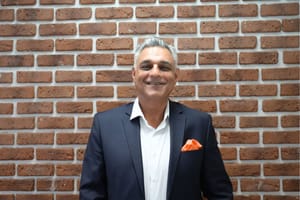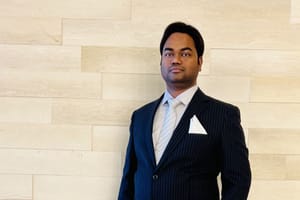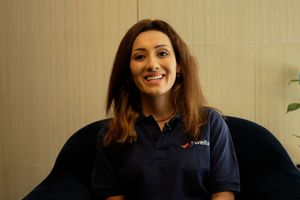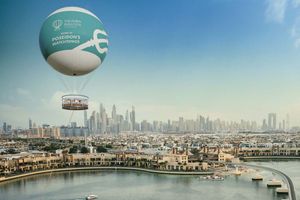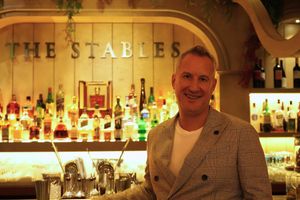George Kunnappally, Managing Director of Nando's UAE, has been a key figure in the hospitality industry for over 25 years. Featured on the Caterer Middle East Power List for four consecutive years since 2020, George's extensive experience in franchise operations, management, and brand development has been instrumental in shaping the success of renowned brands like Subway, Charley's Philly Steaks, and Johnny Rockets across the Middle East, Africa, and CIS regions.
Since joining Nando's in 2018, George has navigated the brand through challenging times, including the pandemic, and spearheaded its expansion across Dubai, Abu Dhabi, and Al Ain. Under his leadership, Nando's UAE has embraced strategic technological advancements while maintaining a strong focus on customer experience and community involvement, ensuring the brand's continued growth and success. In this exclusive interview, he shares insights into his professional journey, the unique aspects of Nando's that set it apart in the competitive UAE dining scene, and the strategies driving the brand's sustained growth and success.
Can you share insights on your professional journey that led you to become the Managing Director of Nando's UAE?
I joined Nando's in late 2018 during a short but unprecedented phase of turbulence. It was challenging because an expat-owned SME business since 2002 was suddenly facing performance issues, mainly due to a few underperforming restaurants. I was brought in to address these issues, open flagship stores in key locations like Dubai Mall and Mall of the Emirates, and revitalize the team and business. Just as we were making progress, the pandemic struck, delaying our recovery by about 18 months. Since then, the market has been kind to us, and Nando's is thriving today with a high employee retention rate, reflecting our stable and supportive environment.
My journey began with a hotel and restaurant management graduate program in Bangalore. I started my career with the Taj group of hotels in India but quickly realized that hotels were not my passion due to the slow career progression. Seeking faster growth, I moved to Dubai on a shopping festival visit visa in 1998-1999 and found immense opportunities.
My first job in Dubai was with Subway as a restaurant manager, and I spent four years with them, opening multiple stores. Then I joined Bateaux Dubai, a greenfield project, where we built a restaurant cruise boat on Bur Dubai Creek. My significant breakthrough came in 2005 when I joined Mr. Mohammad Al Madani to roll out Charley's Philly Steaks in the UAE and Saudi Arabia. I later joined Bin Hindi Enterprises as General Manager of Franchise Operations & Development, expanding into the wider GCC and North Africa markets. My stint at ADNOC Distribution involved franchising their fuel stations globally. However, the mandate changed when the fuel subsidies were lifted pre-IPO, leading me to join a private equity food & beverage fund with brands like Johnny Rockets and Cafe Rouge. Private equity was a different ballgame, focusing on valuations and EBITDA multiples rather than just net profit.
In 2018, I was headhunted for the role at Nando's. Nando's, like Subway, was a brand I had always admired and was eager to work for. Following my interviews with the Franchisor team in South Africa, I met with Mr. Suhail Gidwani, the UAE franchisee, it was clear I was aligned with his vision and goals for the brand and the business. We discussed the main challenges and how I could help address them, leading to one of the best decisions of my life to join him and Nando's UAE in September 2018.
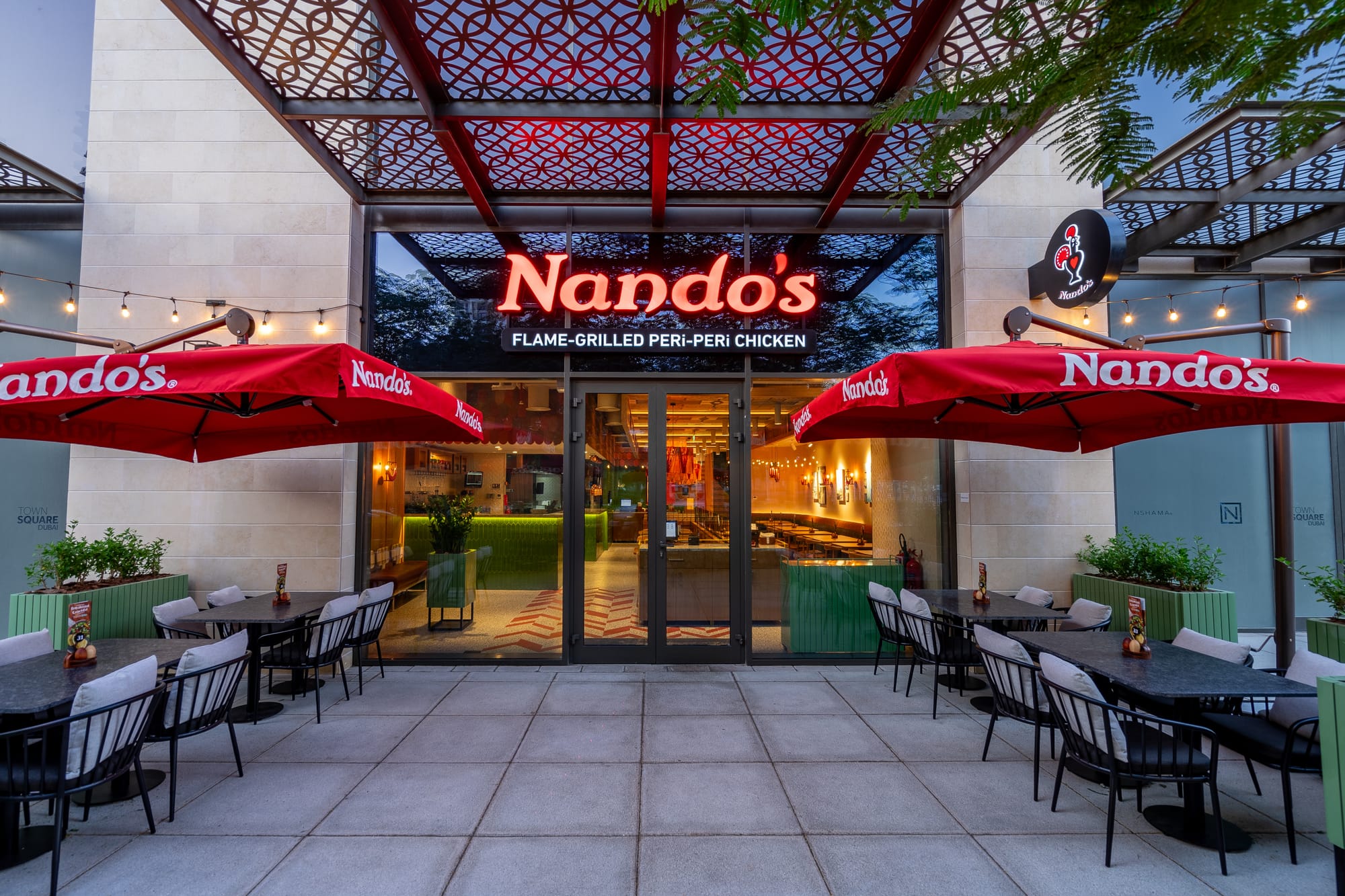
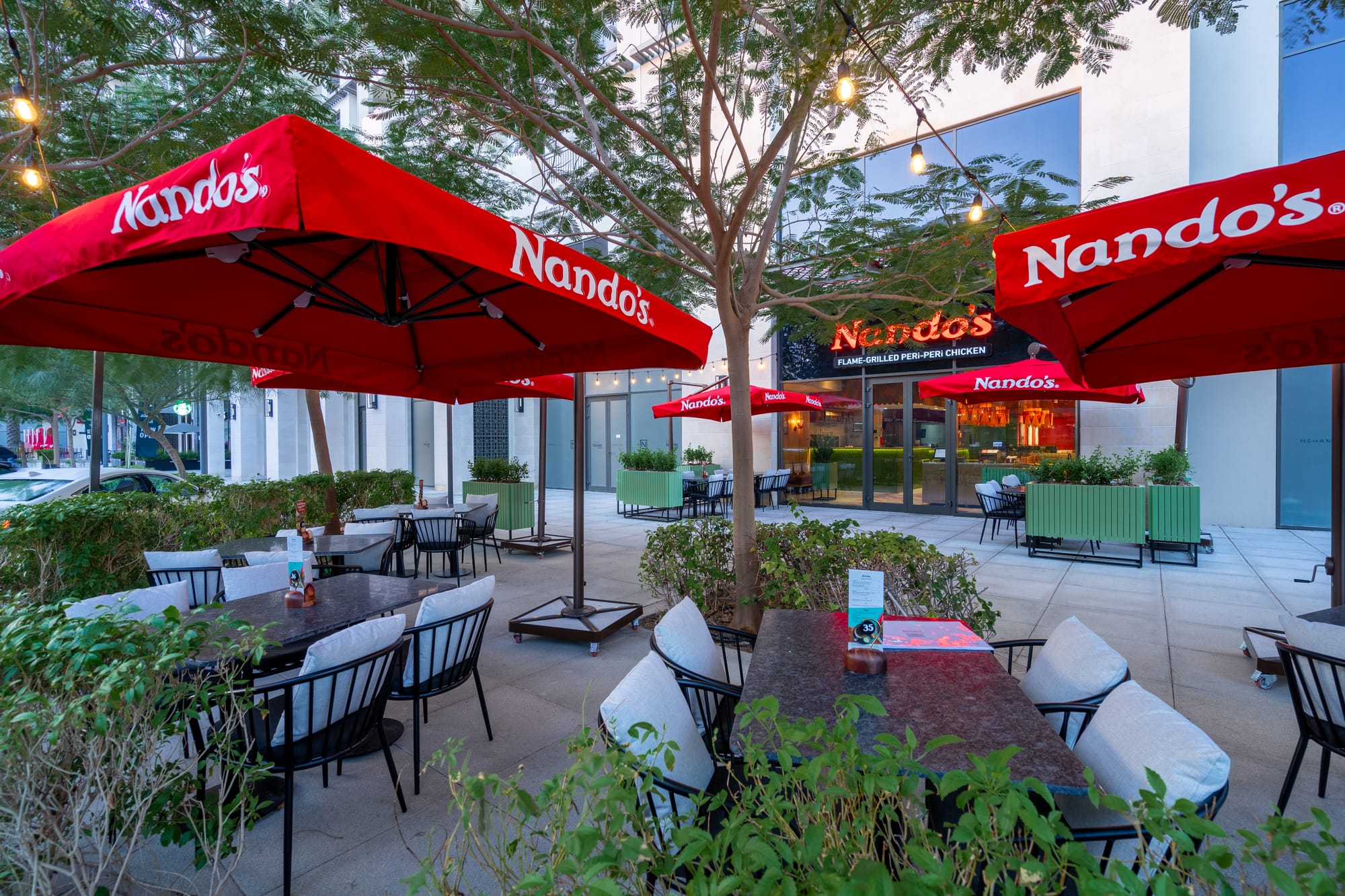
Why was Nando’s on your career bucket list?
I was a fan of Nando's long before I took the role. I remember the day they opened their restaurant in 2002 on Sheikh Zayed Road. As we drove past the new location, I noticed a large queue of people waiting to get in. The area was mostly empty plots, with Rostamani Towers being one of the few established places.
The opening was meticulously planned, with a countdown hoarding displaying the days until the launch. I was impressed by their organization and familiarity with the brand, having studied its story during my graduation phase.
What drew me to Nando's was not just the food but the overall vibe and charm of the place. The Southern African influence, the authenticity of the experience, and the genuine panache of the employees set it apart from other restaurants. The natural and unpretentious atmosphere at Nando's made it an assignment I looked forward to and ultimately, a key milestone in my career.
How would you describe your leadership style, and how has it influenced Nando's UAE's success?
Over time, my leadership style has evolved to become more reasonable and realistic. Initially, in my career, I was often brought into owner-driven businesses to address issues or develop greenfield projects. These roles usually offered significant latitude and low initial expectations, which allowed me to focus on key deliverables such as launching a delayed project or turning around a business and achieving profitability.
Early in my career, my leadership approach was more brutal and high-handed as one is trying to make an early mark and stand out even at the cost of hurting others and burning bridges. However, I soon realized that the same results could be achieved more democratically and with less pain. With over 25 years in the business, including 20 years in leadership roles, I now value every opinion and understand the importance of listening to employees at all levels.
An entrepreneurial mindset in employees is critical, with attributes like humility, passion, optimism, and ambition being essential. Despite not being an entrepreneur myself, I deeply appreciate their role and the risks they take. My leadership style now emphasizes instilling an entrepreneurial mindset in my team, ensuring they treat the business with the same care as they would their own. The ultimate goal is for the business to thrive even after my departure.
Would you say that you tried inculcating that mindset into the employees and has that had a positive impact?
When entering a stressed business, there's typically resistance to change as employees already feel pressured by the company's underperformance. It's important not to add to that stress. Leading by example is crucial; you don't need to replace everyone to make improvements. Most employees just need guidance and direction. Career professionals can adapt to new leadership styles and priorities, whether they are foot soldiers or generals.
Consistency, clarity, and supportiveness are key. Setting an example yourself encourages others to follow. For instance, consistently arriving on time for meetings encourages punctuality without needing punishment or penalties. Over time, I've become more relaxed and cognizant that I could have handled things better in the past. I share these lessons with ambitious and optimistic freshers, advising them to avoid pitfalls and achieve their goals without causing unnecessary harm.
The UAE dining scene is highly competitive. What differentiates Nando's from other brands, and how do you plan to maintain and enhance this competitive edge?
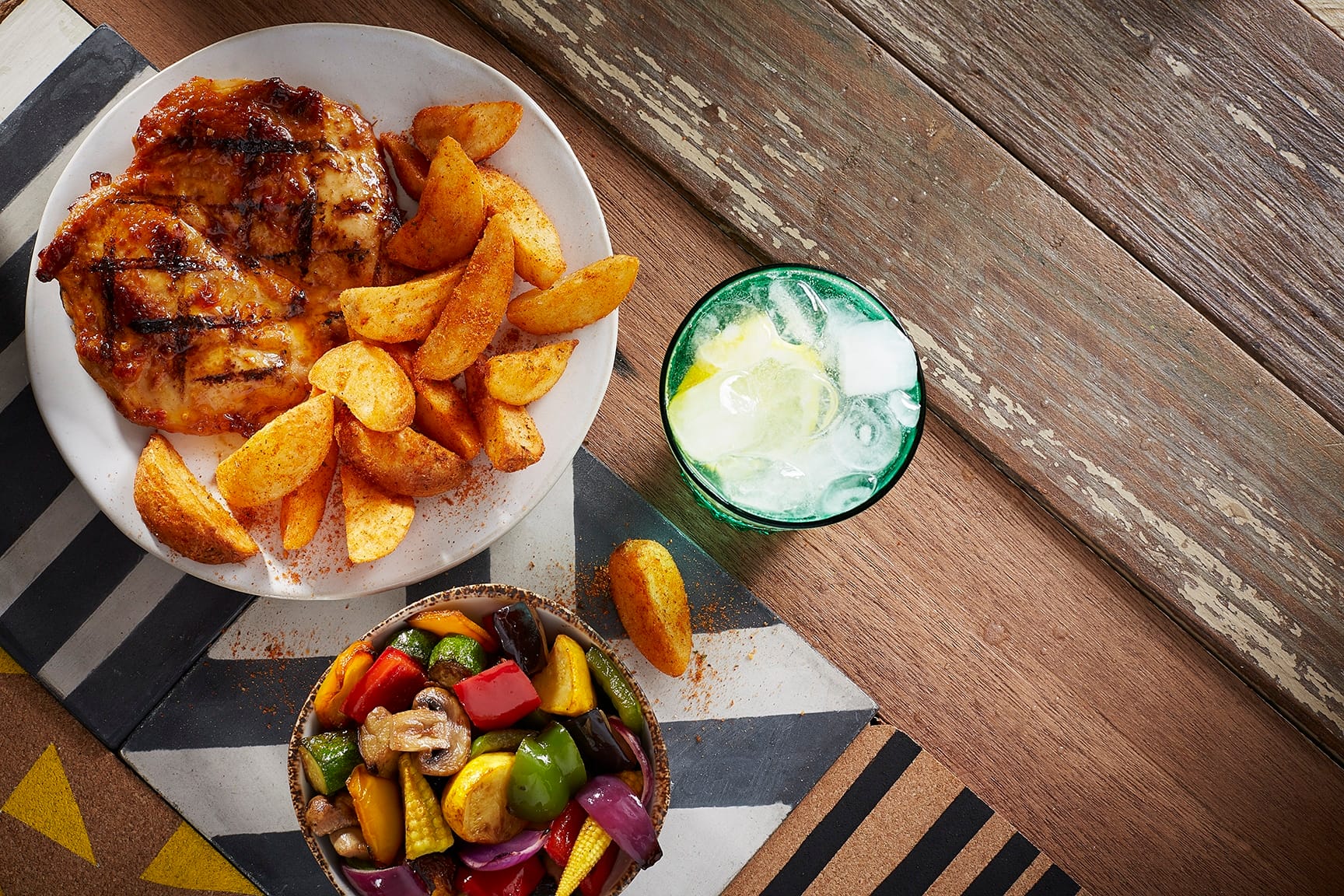
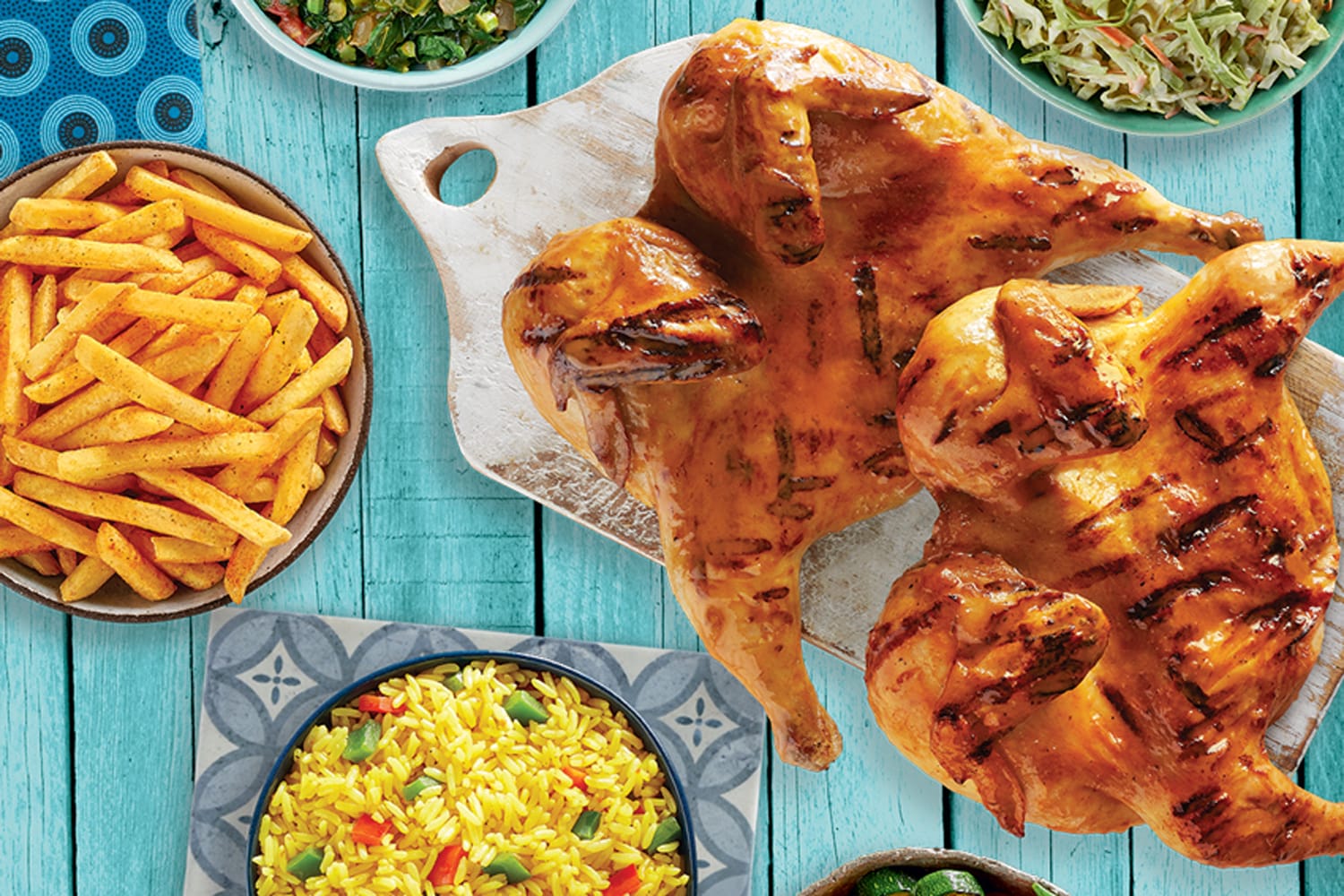
Nando's enjoys a unique position in the flame-grilled peri-peri chicken market, with no direct competitors dominating this space locally.
While other brands may offer similar products, they are either not prominent or entirely absent from the market, which benefits Nando's. The brand distinguishes itself from other premium casual dining chains through its strong fan base - customers who love Nando's tend to visit frequently, up to 3-4 times a month. This loyalty contrasts with other dining brands where patrons might visit only occasionally. The uniqueness of Nando's likened to brands such as Starbucks or McDonald's, lies in its ability to attract repeat visits without the customers feeling bored.
Healthy competition is beneficial for the restaurant industry, but vanity projects are problematic. Unlike professions that require specific qualifications, opening a restaurant often has no entry barriers. This leads to inexperienced individuals starting restaurants, which can result in failure and harm to serious operators. While entrepreneurship is important, the ease of entering the restaurant business can create market saturation and instability. Many people underestimate the hard work required, thinking it's simply about serving food, which leads to many vanity projects failing despite the presence of many successful examples like Saddle Cafe, Pickl, Parkers, and Salt.
Nando's UAE has seen double-digit sales growth since 2021. Can you discuss the strategies behind this growth and the sustainability of this rate in the long term?
Nando's experienced consistent success from 2002 until around 2017, relying heavily on convenient, high-traffic, and visible locations to attract customers. However, challenges arose in 2017-18 due to prior investment commitments and market shifts, which affected the performance of a few locations. To address this, Nando's exited some locations, renegotiated rents and opened new stores strategically.
Opening restaurants in Dubai Mall and Mall of the Emirates in late 2019 and early 2020 respectively significantly improved the business's trajectory just as the pandemic struck. Our Chairman Mr. Suhail’s undeterred faith in the Nando’s business and leadership team and his personal funding during the pandemic allowed Nando's to invest in technology and retrain the team, strengthening their unity and resilience. By mid-2021, the business was comfortable again.
Today, Nando's UAE boasts one of the highest retention rates at 94%, reflecting the value placed on employees and their support during challenges.
Many team members have been with the company for over a decade, showcasing a strong sense of pride and community. Nando's sustainability in growth is maintained through strategic location choices, a strong internal culture, investment in technology, and unwavering commitment to the team and customers.
How have the recent significant renovations at key locations impacted customer footfall and overall sales? Can you provide any metrics or data that highlight the success of these refurbishments?
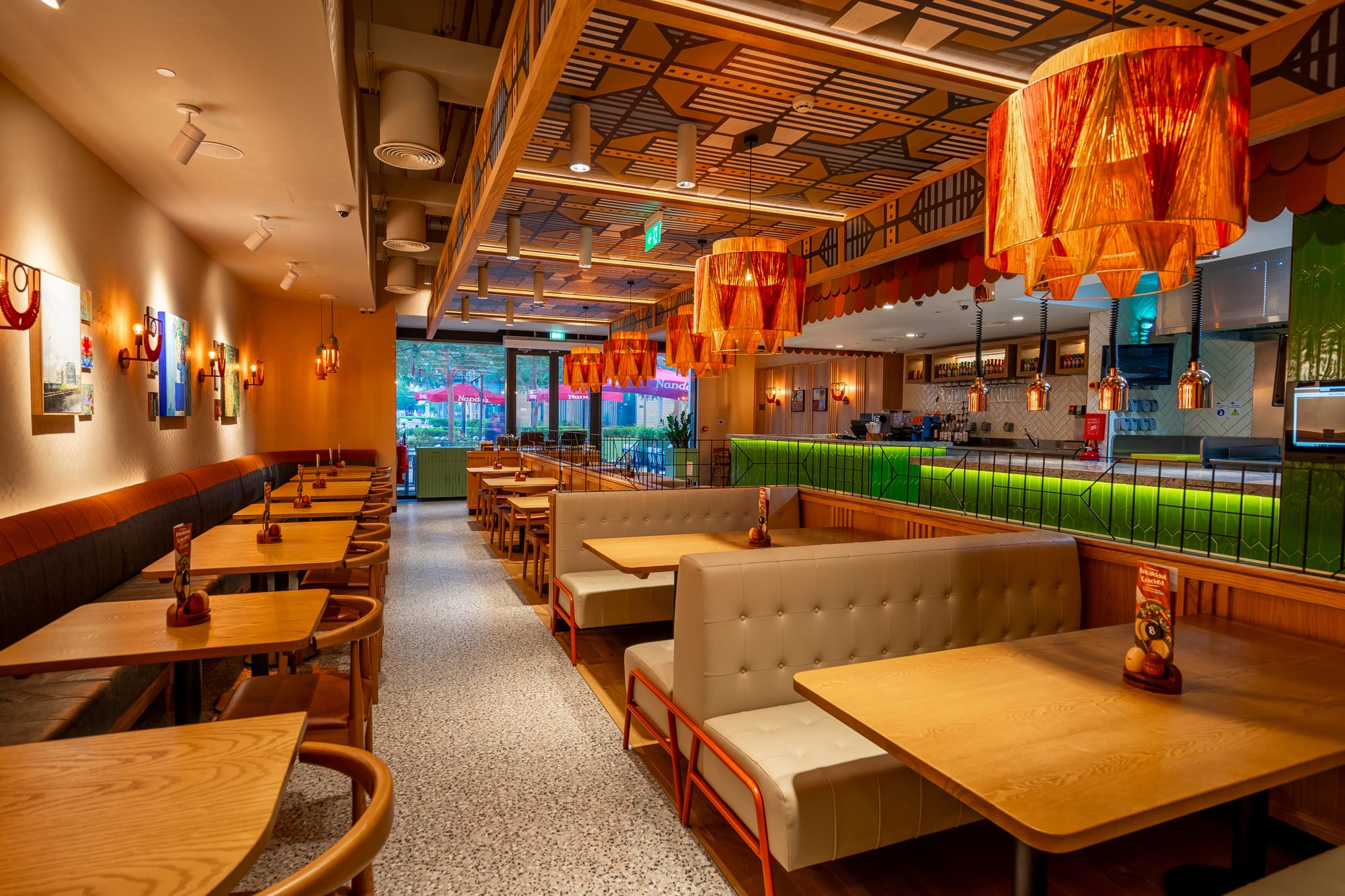
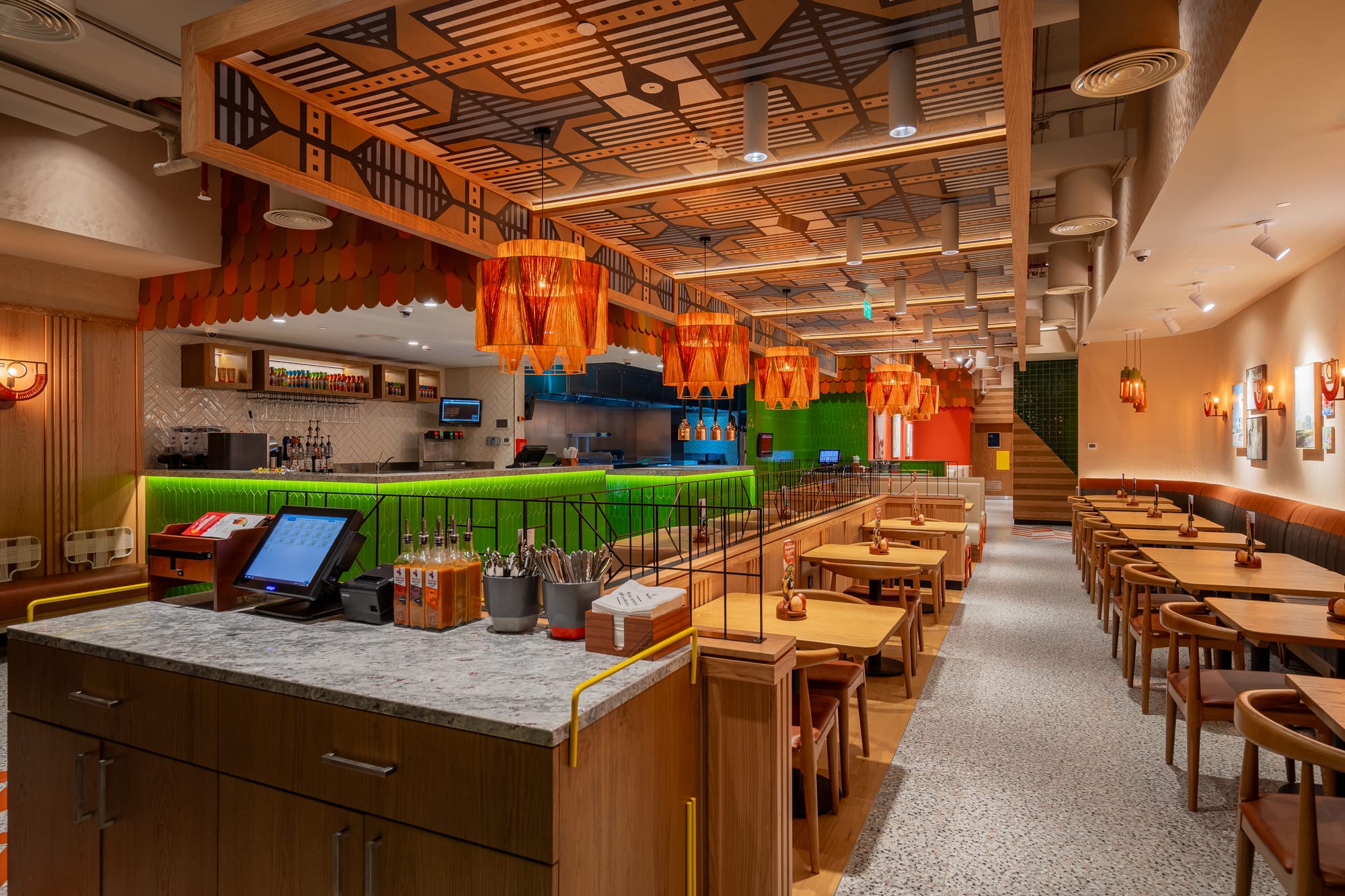
Renovations are typically undertaken to keep our establishments looking fresh and appealing. Unlike many franchise restaurants that have a uniform design, each Nando's location is individually designed. While you can recognize a Nando's from its bright colors, African theme, furniture, and artwork, every restaurant has unique design elements. The interiors are frequently updated to provide a new experience for loyal customers.
Renovations are guided by customer feedback and operational needs, leading to adjustments in seating, kitchen size, and other elements. For instance, a location with high delivery demand might see an expanded delivery counter. Practical considerations like furniture arrangement, daylight management, and updates to lighting and artwork are also addressed.
These renovations typically boost revenue by 15 to 20%, with at least a 10% increase maintained over time. This helps offset renovation costs and ensures the brand remains current, benefiting both revenue and employee morale. These updates are part of Nando's business strategy and not necessarily mandated by landlords.
What specific elements make the in-restaurant experience at your establishments superior to delivery?
We prioritize the dining experience over delivery because it offers a superior product experience. Enjoying an Espetada at the restaurant is more satisfying than having it delivered. We use dark kitchens to test new communities' potential, and successful delivery locations may become full-service restaurants in the near future.
Most of our business comes from dine-in customers, with delivery kept at 25-30%. Unlike other brands increasing their delivery ratios, we remain an experience-based dining restaurant.
We invest heavily in quality food, ambiance, and service. Our unique dishes, offer large, shareable portions at an affordable price, providing premium value. Our restaurants are designed for comfort, especially for families, with cozy seating and an inviting atmosphere. Friendly and engaging staff add to the positive experience. Our focus on superior food quality, inviting settings, and exceptional service at affordable prices ensures that dining at Nando's is a unique and enjoyable experience.
What are the biggest challenges you have faced in the F&B industry in the UAE, and how have you addressed them?
A significant challenge in the F&B industry in the UAE is the high occupancy costs, particularly the lack of rent regulation. Many landlords are not under the remit of RERA, which leads to sudden, steep rent increases at the time of lease renewals without much recourse for tenants. For example, while paying high rent in a prime mall location might be justified by business potential, unexpected rent hikes after significant investments can be financially crippling. Unlike residential leases, commercial leases often don't have regulatory protection against drastic increases on lease renewal.
During the pandemic, major landlords were supportive, providing relief despite not being required to do so. However, there are still instances where restaurants face substantial rent increases upon lease renewal without any legal recourse, creating financial instability for small businesses. Addressing these lease renewal increases through regulation could offer better protection and stability for businesses.
Another significant challenge is the shift from a fee-based economy to a combined fee and tax-based system in many Middle Eastern cities, which initially relied on fees for revenue due to the lack of hydrocarbon resources. The introduction of VAT and corporate tax has added further costs to small businesses, which find it difficult to afford both fees and taxes. While taxation is essential for infrastructure investments and to pay for public services in a developing nation, there needs to be a balance. Reducing fees when taxes are fully implemented would make businesses more competitive, allowing them to grow, employ more people, and contribute more to the economy. Thus, there is a need to re-evaluate the fee structure to ease the financial impact on SMEs.
In the UAE, there has been no issue with clarity on procedural matters, which is often a problem elsewhere. Recently, Nando's UAE hired its first batch of Emirati nationals in various departments, including HR, marketing, customer service, call center, and government relations. This process, facilitated by excellent government support, was smooth and provided fresh perspectives on the brand from young Emiratis in their late 20s and early 30s. These insights have led to a significant reassessment and update of the company's strategies, revealing that their initial understanding of this demographic was only about 30% accurate. This younger generation, particularly the 25 to 35-year-old age group, has different perceptions and preferences compared to the Emirati families Nando's has historically focused on.
Nando's typical customer base in the UAE consists of families, often in their mid-30s to 60s. This differs from the UK, where the fast-casual model attracts younger crowds for office lunches and even dates. When asked, my son outright rejected the idea of taking a first date to Nando's, preferring spots like Salt, Shake Shack, and Raising Cane's. Curious, I recently visited Raising Cane's with my wife and felt out of place as the oldest person there, while everyone else seemed to think, "What are Uncle and Auntie doing here?"
I then tasked our marketing team to figure out what these brands are doing right that we might be missing. Even though we offer a great product at a similar price point, these places manage to attract a younger audience. We are now working with our new Emirati recruits to better understand the preferences of the 18 to 25-year-old demographic and hope to make Nando's just as appealing to them. While there may be some demographic differences, the aspirations and expectations of young adults are largely universal.
The revamped vegetarian menu has seen a 20% month-on-month growth. What market research or customer feedback led to these changes, and how do you plan to continue innovating in this space?
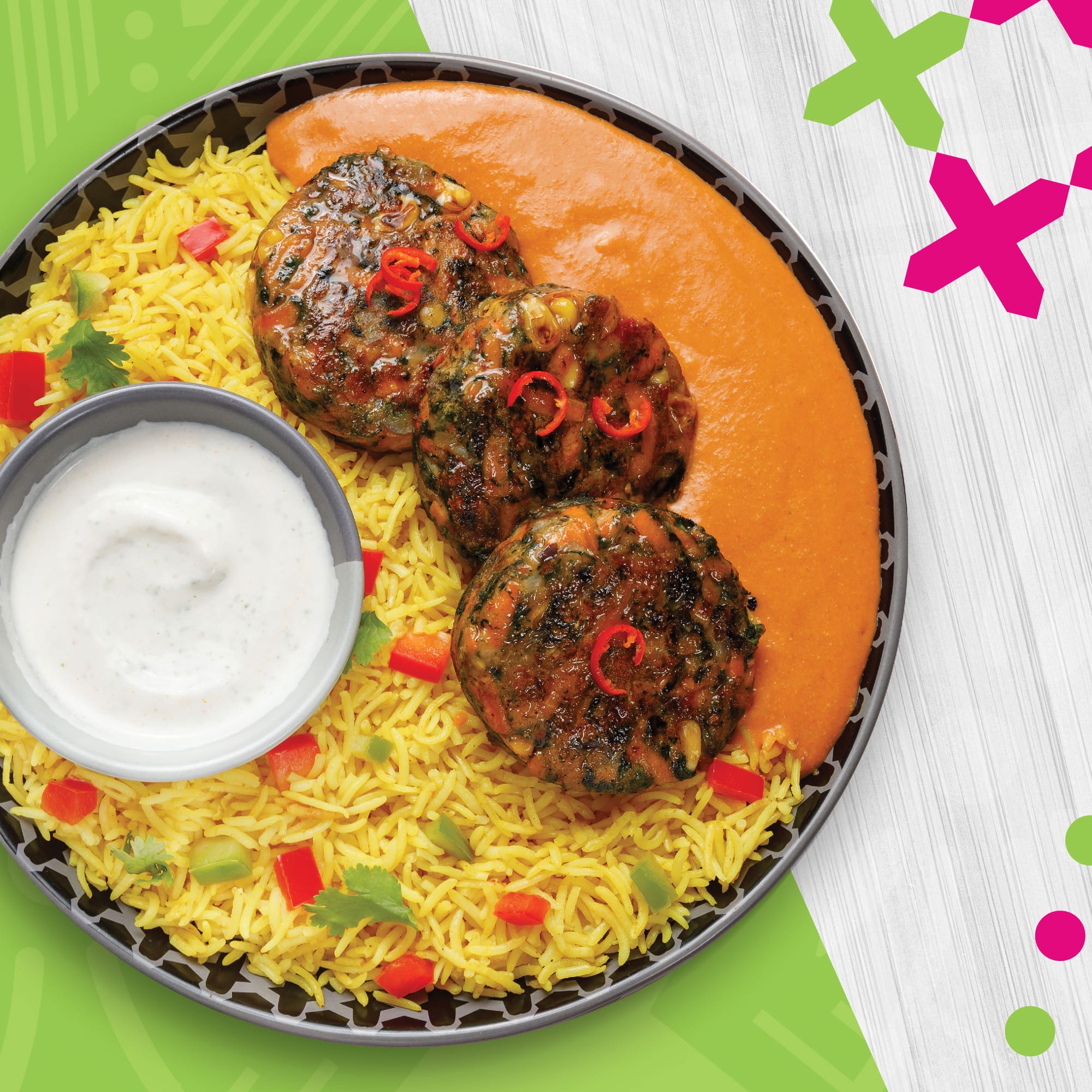
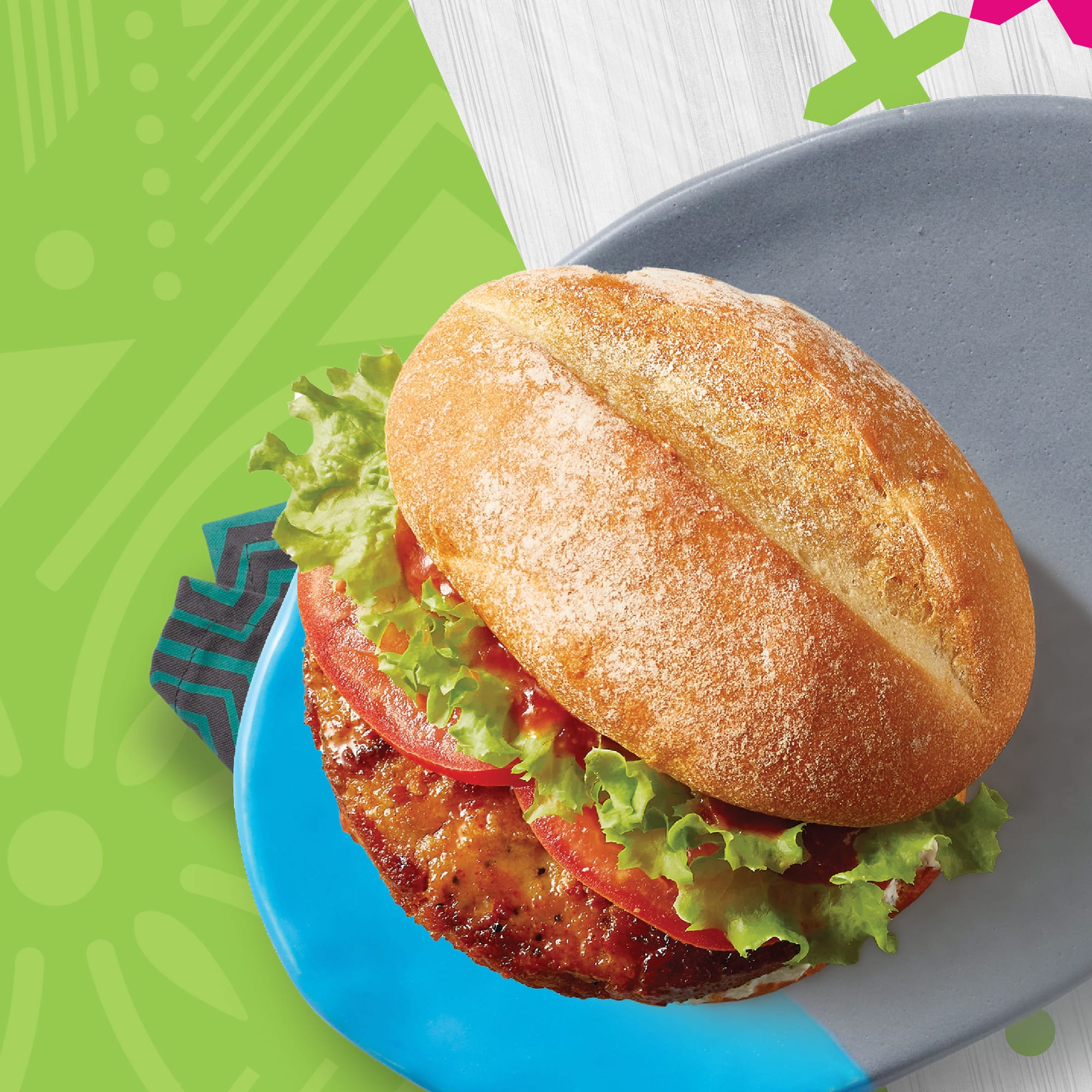
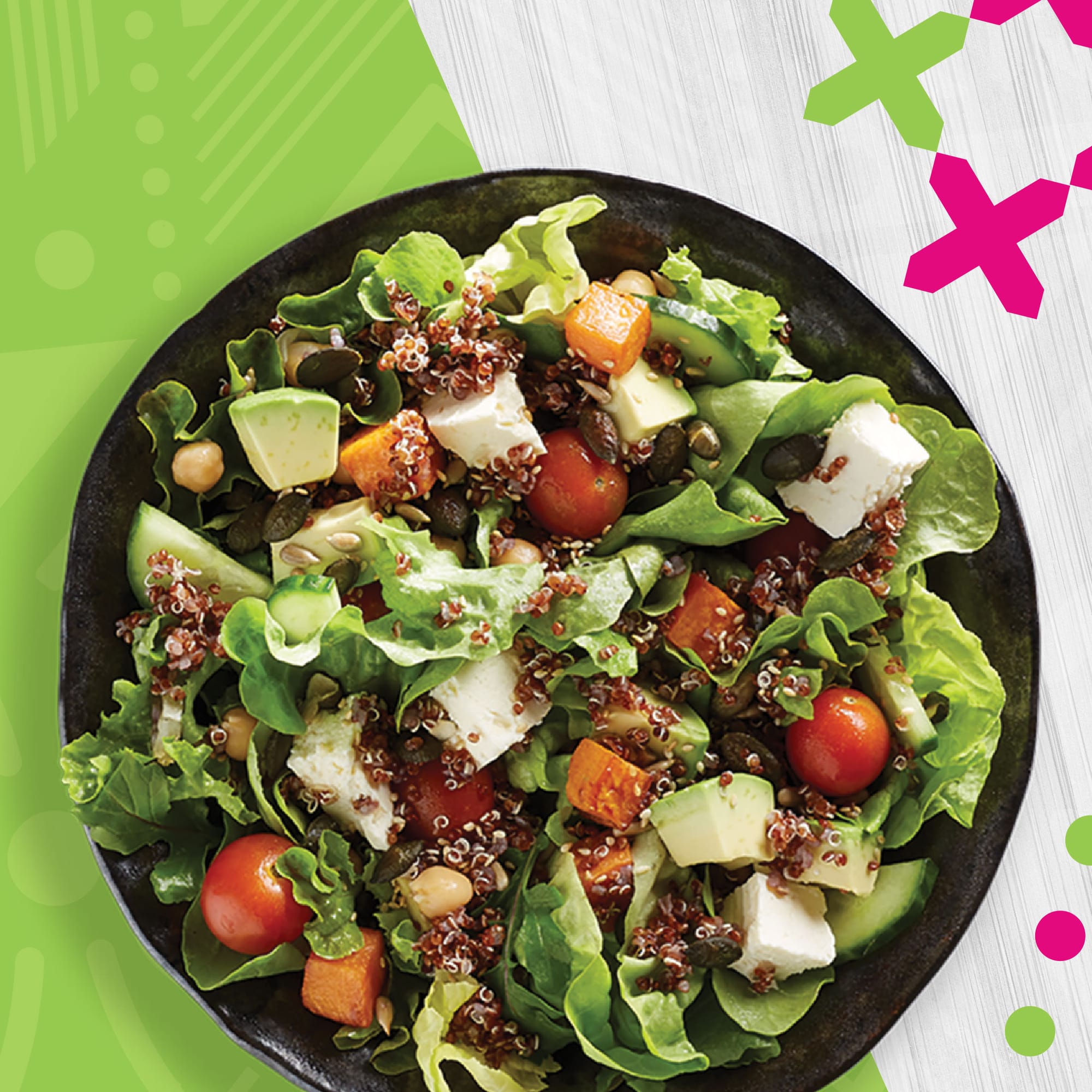
Our vegetarian menu was born out of persistent customer feedback. People often asked, "Do you have a vegetarian menu?" and our response used to be, "Well, we have salads and a couple of appetizers and some burgers, pitas and wraps." It felt like we were just being nice to vegetarians rather than treating them as a core audience. We wanted to change that and show vegetarians they are equally important.
Times have changed. Vegetarians aren't just following dietary restrictions for religious reasons or doctor's orders anymore. Nowadays, many people choose vegetarian meals for health, ethical, or lifestyle reasons. Even my wife, a vegetarian by belief, used to feel there wasn't much for her at Nando's. So, we decided to compile all our vegetarian options into a dedicated menu, making it easy for vegetarians to see what we offer. We've added new items and ensured they get the same focus and attention as our chicken dishes.
I've experienced restaurants where vegetarian options are just an afterthought, like removing chicken from a dish and calling it vegetarian. We wanted to avoid that and truly cater to the growing vegetarian audience. By listening to feedback from our teams and customers, and consistently analyzing reviews, we've been able to make meaningful changes and ensure no review is dismissed as an isolated incident.
We also enhanced our beverage and dessert menus to cater to those who might not be there for the chicken. Our goal was to offer a variety, all with a Nando's twist, ensuring value and interest for every customer.
The introduction of breakfast options in 18 locations has garnered steady growth. What were the driving factors behind this decision, and how do you measure its success compared to your traditional menu items?
Our venture into breakfast wasn't driven by market feedback but rather an observation by our team. We noticed that many non-breakfast-oriented restaurants were successfully offering breakfast. We had fantastic venues that were underutilized between 8 AM and 12 noon, with our first lunch orders not coming in until noon. So we thought, why not use this time more effectively?
We didn't want just any breakfast menu; we aimed for a proper breakfast with a Nando's twist, heavily promoted through social media and influencer collaborations. Being a well-loved brand, we knew people would give us a chance, maybe even two, to get it right. So, breakfast became a brand extension for us. After trials and tweaks, we rolled it out gradually, and now it's available in 18 locations.
Our breakfast menu includes the usual suspects like eggs to order, sausages, pancakes, and smoothies, all with a Nando's twist. The feedback has been great, with customers pleasantly surprised at our unique takes on these dishes. Just like our local editions—hummus, fattoush, batata hara, and fried halloumi—our breakfast items are designed to be interesting conversation starters.
In essence, if Italian and Turkish restaurants can be breakfast venues, why can't an Afro-Portuguese flame-grilled chicken restaurant? Breakfast has become a significant part of our sales mix, and we're excited about its potential. We aim to provide a full dining experience, not just lunch and dinner but breakfast too.
Nando's UAE emphasizes community involvement. Can you provide specific examples of community initiatives you have undertaken and how they have benefited both the community and your brand?
At Nando's, we take immense pride in being one of the largest collectors of Southern African original art. Our restaurants worldwide—from New Delhi to London to Washington DC, Dubai, and beyond—are adorned with unique pieces commissioned and curated by us. Supporting around 275 artists, each artwork adds a distinctive touch to our locations and demonstrates our commitment to promoting Southern African artists and providing livelihoods to their communities.
Our African bird's eye chili, which gives our peri-peri sauce its unique flavor, is sourced directly from Southern Africa, reflecting our deep roots in the region. Beyond this, our community involvement extends globally. For example, in the UAE, we partnered with the Dubai Autism Center during Ramadan, where Emirati artist Abdullah Lutfi, who is on the spectrum, designed tote bags sold to support the center.
In line with our community spirit, we sponsor the Arabian Falcon Football Club, which helps young African footballers train and study in Dubai. Some of these players even work part-time in our restaurants, creating a strong community bond.
We believe in being active supporters of the communities we serve. Employing about 600 people from 20 nationalities, our diversity enriches our community initiatives.
Engaging in these community efforts instills a sense of purpose in our employees, showing that Nando's is about more than just profit. Our involvement in these initiatives benefits both our brand and our people, reinforcing the importance of responsibility and purpose alongside profitability. This holistic approach ensures that we remain a responsible and successful business, taking care of all our stakeholders.
How does Nando's UAE stay attuned to the evolving preferences of its customer base? Can you share any recent insights or trends that have influenced your menu or service offerings?
As operators, we're always present in the restaurant, engaging with our teams and observing everything. Our leadership often has lunch in the restaurant, which allows us to closely watch customers. We monitor how they order, what they order, and if our staff communicates effectively. We check for leftover food to see if portions are too big or if the food gets cold due to air conditioning. We also note if the music is too loud or if customers ask for the lights to be dimmed. Our teams provide extensive feedback on customer interactions, waiting times, and the overall ambiance, including washroom hygiene, lighting, music, and fragrance.
We analyze sales data to understand product popularity and customer preferences, which helps us make informed decisions. As a small, owner-driven business based in Dubai, our focused approach allows us to act quickly on this actionable intel.
After 22 years, we've invested in a CRM platform. In small businesses, individual contributors handle multiple functions, even during their annual leave. A CRM tool can generate vast amounts of data, but without a proper team to analyse and act on it, the investment is wasted. Many operators with few restaurants use CRM solutions without the necessary staff, resulting in underutilized data.
We only adopt technology if it meets customer demand or improves operational efficiency. For instance, we implemented pay-at-the-table because it speeds up service and meets customer expectations, allowing quicker table turnover. We avoid unnecessary tech investments until reaching a certain revenue threshold and having the appropriate team to manage it. This approach ensures that any technology we adopt truly benefits our business and enhances customer experience.
Do you see Nando’s becoming tech-heavy in the future with the expansions and the focus on digitalization in the UAE?
Currently, Nando's has reached a level of operational efficiency with our cloud-based restaurant POS system. We've implemented an IP phone system and a call center system integrated with our restaurant POS system through middleware, and the POS system also talks to our backend ERP system. Our tech infrastructure also includes a robust CRM tool, HRMS, and payroll management systems.
With 600 employees and an expected 23-26 restaurants and dark kitchens by year-end, these investments are justified by our business volume. However, for smaller businesses, simpler solutions like Tally and Excel are often sufficient. I advise against investing in extensive tech stacks until reaching a profitable revenue threshold. We operated effectively without these systems when we were smaller. Now, as a reasonably sized business, our current tech investments are practical and necessary.
With new openings scheduled in Abu Dhabi by the end of 2024, what are the key challenges Nando's UAE faces in this expansion? How do you plan to overcome these challenges?
In Dubai, we have a strong presence with 15 sites, making Nando's easily accessible. Our goal is for customers to reach a Nando's branch within 15-20 minutes and get delivery within 30 minutes. In contrast, Abu Dhabi needs more locations, as the average distance between two Nando's is still 15-20 km.
We are expanding in Abu Dhabi with new locations like Al Wahda Mall, which will open later this year, and Waitrose in Khalifa City, targeting both Emirati and expat communities. We are also exploring sites along the Corniche, Khaleej Al Arabi Street, and Mushrif Mall area, and are already present in Reem Island, WTC Mall, Dalma Mall, and Al Zeina in Al Raha Beach. We aim to reduce the distance between locations.
In Al Ain, we have stores in Al Ain Mall and Al Jimi Mall, with no immediate plans for more, but we are open to expansion as the city grows. Despite our tech advancements, we remain focused on being a strong brick-and-mortar brand.
*This interview was conducted by journalist Shameena Shaffi, with videography by Habiba Shahid.
Watch the video interview:
Also Read:
